-
 The state lawmakers had decided they wanted the US senators instead of regular people to vote them into office.
The state lawmakers had decided they wanted the US senators instead of regular people to vote them into office. -
Complaints started growing about corruption and deadlocks in state legislators. While some of the other states couldn't agree on who to send in for the Senate, leaving some seats open for months.
-
Congress talked about letting people vote directly for US senators. This idea didn't pass, but it showed how unhappy people were with the old system. Congress had eventually made a rule that helps state vote more fairly and quickly.
-
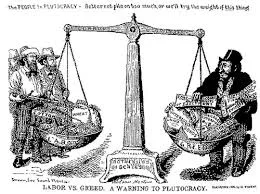 A group of called the populists wanted regular people to have more power within their government. They said it would be fairer if the citizens got to vote directly for their senators. After opening up this idea the people started to support this during the elections.
A group of called the populists wanted regular people to have more power within their government. They said it would be fairer if the citizens got to vote directly for their senators. After opening up this idea the people started to support this during the elections. -
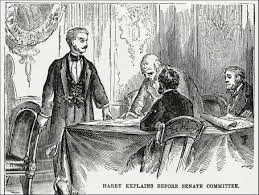 Several bribery scandals involving Senate elections came to light, leading to widespread public outrage and increasing demands for reform. These scandals revealed how wealthy individuals and corporations could influence Senate elections through bribery, undermining the democratic process.
Several bribery scandals involving Senate elections came to light, leading to widespread public outrage and increasing demands for reform. These scandals revealed how wealthy individuals and corporations could influence Senate elections through bribery, undermining the democratic process. -
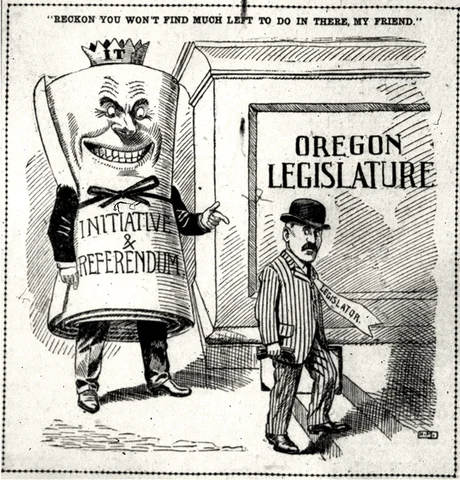 Oregon becomes the first state to let voters directly influence Senate elections through the “Oregon System.” Before this, state lawmakers picked senators, which led to problems like bribery and deadlocks.
Oregon becomes the first state to let voters directly influence Senate elections through the “Oregon System.” Before this, state lawmakers picked senators, which led to problems like bribery and deadlocks. -
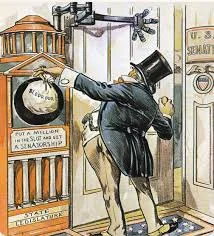 In 1910, more than half of the states were letting people have a say in picking U.S. senators. This was part of a bigger push to give citizens more power in government, and it was inspired by Oregon’s “Oregon System.” States used things like initiatives, referendums, and primaries so regular people could help choose their senators instead of leaving it all to lawmakers.
In 1910, more than half of the states were letting people have a say in picking U.S. senators. This was part of a bigger push to give citizens more power in government, and it was inspired by Oregon’s “Oregon System.” States used things like initiatives, referendums, and primaries so regular people could help choose their senators instead of leaving it all to lawmakers. -
Congress debates and approves the idea of a constitutional amendment for direct elections. Before the amendment, senators were chosen by state legislatures, a system that often led to delays and vacancies due to political disagreements.
-
 The 17th Amendment was approved by the required number of states. It was officially changing the process so that U.S. senators are elected directly by the people of each state.
The 17th Amendment was approved by the required number of states. It was officially changing the process so that U.S. senators are elected directly by the people of each state. -
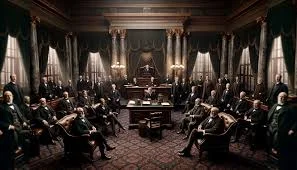 In 1914, the United States held its first direct elections for U.S. senators, following the ratification of the 17th Amendment in 1913. This amendment mandated that senators be elected by popular vote, rather than appointed by state legislatures. The direct Senate elections marked a pivotal moment in U.S. history, reflecting a shift towards greater democratic participation and transparency in the election of federal lawmakers.
In 1914, the United States held its first direct elections for U.S. senators, following the ratification of the 17th Amendment in 1913. This amendment mandated that senators be elected by popular vote, rather than appointed by state legislatures. The direct Senate elections marked a pivotal moment in U.S. history, reflecting a shift towards greater democratic participation and transparency in the election of federal lawmakers.